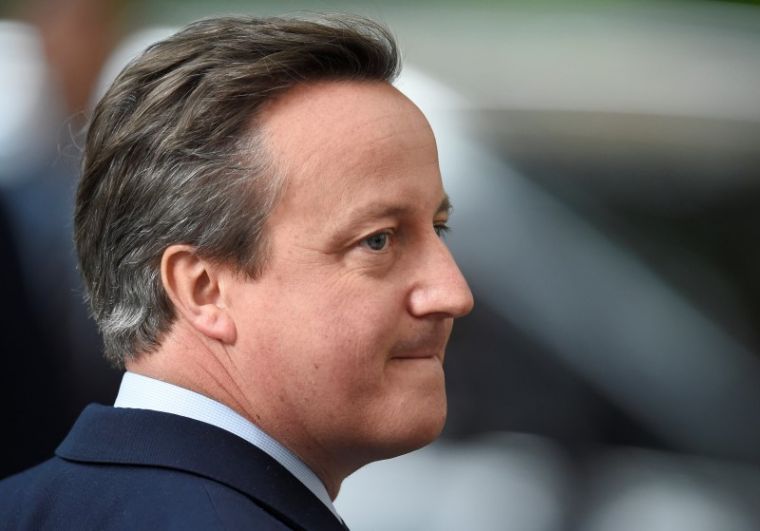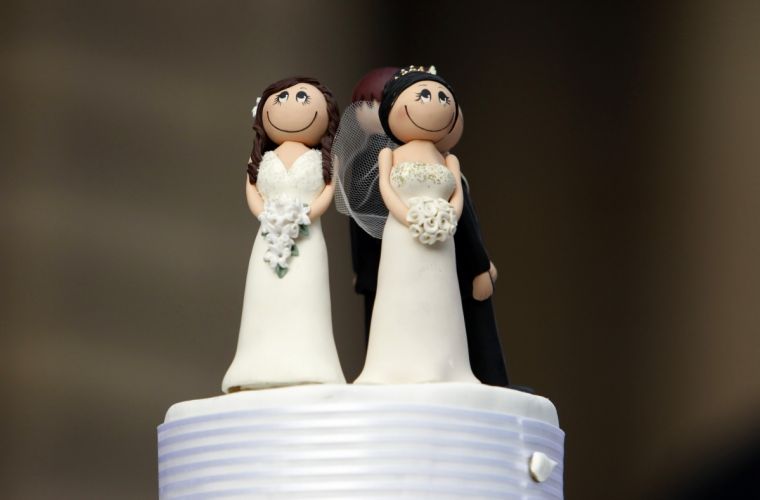Are UK churches conducting lots of same-sex marriages? The evidence says no
The introduction of same-sex marriage in the UK in 2014 was heralded as a landmark move, a 'watershed moment'. So much so that the then Prime Minister, David Cameron, still cites the move as the one of which he is most proud.
In fact, it was perhaps more important symbolically than it was in practical terms. For while it was arguably a policy fig-leaf that awarded Cameron's Conservatives the impression in the media of having 'modernised' while remaining unreconstructed on the major issues that affect people's lives – the economy, immigration and of course Europe – demand for same-sex marriage remains low.

Official figures show that, from March 2014 to October 2015, approximately 15,000 same-sex marriages were performed in England and Wales.
Now it has emerged, from research conducted by the Universities of York and Leeds, that the majority of places of worship that permit same-sex marriage carry out small numbers of ceremonies, with just over half having actually married a couple.
Same-sex couples are barred from marrying in around 40,000 places of worship across England and Wales that permit heterosexual couples to marry, and there are only 182 places of worship registered for same-sex marriage.
The new research is based on a survey of 71 of those places of worship, and shows that of those that have performed a same-sex marriage, three-quarters provided a religious marriage ceremony to a same-sex couple that had not previously worshiped there.
The universities said that this indicates that they welcome couples who are excluded from marrying in their own place of worship. However, it is not clear how many same-sex couples there are who worship at churches which continue to prohibit same-sex marriages, though it is known anecdotally that there are of course a significant a number of gay Anglicans, especially in non-evangelical churches.
Dr Silvia Falcetta, from the University of York's department of sociology, said: 'This report shows that same-sex couples are at a significant disadvantage to different-sex couples, because same-sex couples are more likely to live in an area where there is no scope to be married in a place of worship according to a desired religious ceremony.'

By this, Dr Falcetta appears to mean simply that, with so many churches in England and Wales (not to mention Muslim and other places of worship) barring same-sex marriages, there are relatively few places of worship that allow them.
The researchers are not without an editorial position on these questions, however. The report says: 'The change in law in 2013 to allow same-sex couples to marry in England and Wales was a major milestone on the road to legal equality for gay men and lesbians in the United Kingdom. Same-sex couples in England and Wales now have the same opportunities as different-sex couples to marry by way of a civil ceremony in, for example, a register office or approved premises such as hotels.
'However, same-sex couples who wish to marry by way of a religious ceremony in England and Wales are at a significant disadvantage to different-sex couples. Only a small number of religious organisations, and the tiniest number of places of worship, permit same-sex marriage. As a consequence, same-sex couples have very little opportunity to marry in a place of worship or by way of a religious ceremony.
'Religious faith and homosexuality are not antithetical. Many same-sex couples who want to get married wish to do so according to the rites of their faith. This fact is recognised by those religious organizations that have taken the significant step of offering same-sex couples the opportunity to have a religious marriage ceremony.'
Separately, the research team also found that registering a place of worship for same-sex marriage can sometimes create tensions between it and the broader religious group of which it is a part, and can attract opposition and antagonism from other religious groups in their local areas.
The research found that registering a place of worship can also produce conflict within a congregation, with some members of churches deciding to leave.
However, many places of worship report that registering for same-sex marriage has produced positive benefits within a congregation, including strengthening the solidarity of existing members, supporting existing LGBT members, and attracting new members.
Prof Paul Johnson, Head of the University of York's department of sociology, said: 'Some places of worship regard their commitment to same-sex marriage as a positive way of advertising and marketing their faith and practice.'
During debates over the enactment of the Marriage (Same Sex Couples) Act 2013, considerable attention was given to the need for protections for individuals who do not want to participate in same-sex weddings – as ministers, or choristers, for example. The research shows, however, that very few people refuse to participate and therefore need these legal protections.
Prof Robert Vanderbeck of the University of Leeds said: 'Although many claims have been made about how the introduction of same-sex marriage would affect religious groups that offer it, these data provide the first systematic glimpse of what is actually happening on the ground in churches and other places of worship.
'Despite worries to the contrary, in 90 per cent of places of worship [that allow same-sex marriage] no person has refused to participate in a same-sex marriage ceremony.'











